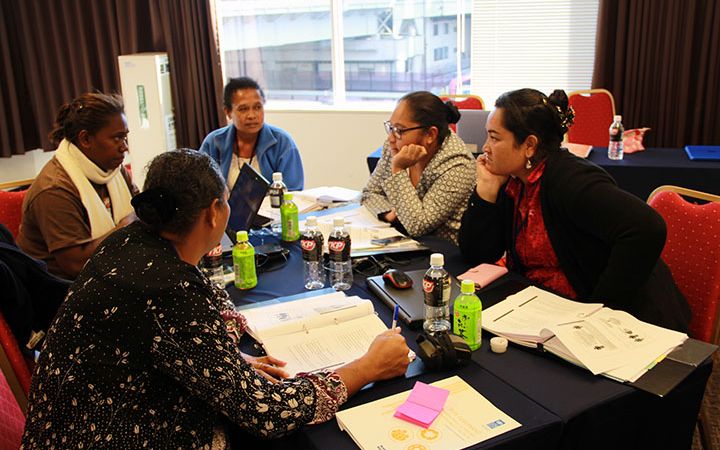Displaying 2021 - 2030 of 2503
12 October 2011, Geneva, Switzerland. UNOSAT work in support to the international humanitarian and human rights communities was at the centre of discussions at the UNITAR-WMO Symposium on “leveraging satellite solutions for global challenges” that concluded successfully in Geneva on 12 October 2011.
12-13 October 2011, Geneva, Switzerland. The workshop on “Regional Integration: Key Negotiation Challenges Moving Forward”, which was directed by Dr. El Hadji A. Diouf (Executive Director, African Agency for Trade and Development) and Dr.
With the generous support of the Swiss Development Cooperation (SDC), Indonesia and Malawi will join Benin, Uganda and the Dominican Republic as the fourth and fifth pilot country to start a UN CC: Learn project in 2011. The five countries were selected by the UN CC: Learn Steering Group in July 2011 from among 23 countries who had submitted an application to participate in the UN CC: Learn Pilot Implementation Phase, 2011-2013.
The following content is reposted courtesy of IRIN News (humanitarian news and analysis, a service of the UN Office for the Coordination of Humanitarian Affairs).
Bangkok, Thailand, 11 October 2011 (IRIN) - As residents across flood-ravaged Southeast Asia look up to the skies and brace for more rain, satellites 35,800km away are looking down on them.
Bangkok, Thailand, 11 October 2011 (IRIN) - As residents across flood-ravaged Southeast Asia look up to the skies and brace for more rain, satellites 35,800km away are looking down on them.
5 to 6 October 2011, Santo Domingo – The Domican Republic held its National Planning and Inception Workshop from 5 to 6 October 2011 with the participation of UNITAR.
UNITAR and DevInfo partnered to train national actors on the new DiMonitoring tool for improving the creation and implementation of national to local development plans.
28-30 September 2011, Vienna, Austria. One of the three international UN headquarters, Vienna provides an exciting, yet sometimes confusing working environment for diplomats.
In September 2018, UNOSAT delivered a successful training course on Geographic Information System (GIS) Capacity Development for Territorial Planning and Monitoring. This face-to-face training was held at UNOSAT premises in Geneva, Switzerland, where trainees were hosted at campus and provided with theory and hands-on activities.
September 2011, Belize and Panama: Following PRTR Technical Meetings held in Costa Rica, Guatemala and Honduras in June 2011, with the participation of PRTR experts from Chile, Mexico, Peru and Spain, additional technical meetings were held in Panama (30-31 August) and Belize (1-2 September).
UNITAR was honoured recently to take part in the International Conference on Peace from Disasters: Indigenous initiatives across communities, countries and continents.



